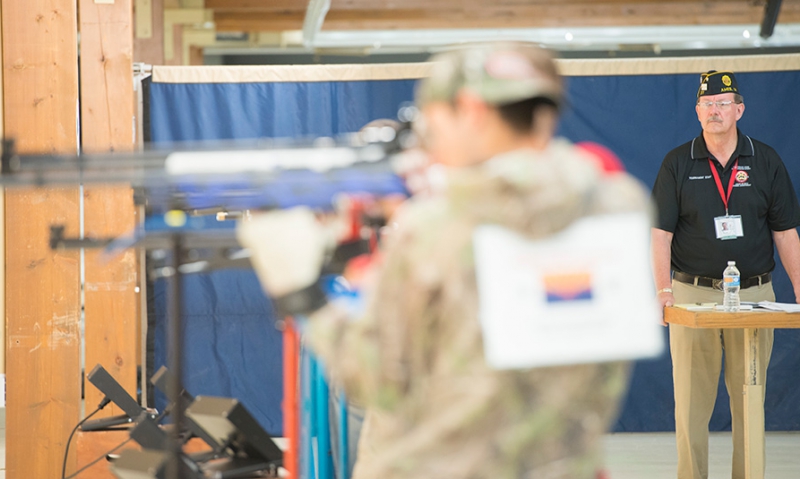
First JSSP conference a success
Several American Legion Junior Shooting Sports Program (JSSP) department chairmen attended the Legion's first National Junior Shooting Sports Conference last weekend in Indianapolis. The conference was an opportunity for attendees to receive answers to questions about the program, discuss ways to start a club, and share ideas for next year's conference.
For Loren "Bud" Sperry, the JSSP chairman for the Department of Washington, the conference was a longtime vision. "The conference was awesome because I have been wanting this for a long time to answer questions that the department chairman and coaches may have and to see how other states and chairman operate their Shooting Sports Program," Sperry said. A member of Post 181 in Lake Stevens, Sperry gave a PowerPoint presentation on how posts can start a club "without a lot of money; just build on what you have as you go."
Besides setting up a committee within the post to be in charge of the Junior Shooting Sports club, changing post bylaws to include the club, fundraising for the equipment and educating the community about the club, Sperry said only 33-feet is needed for a firing lane, allowing many posts to conduct the program inside their post building. For a few posts in the State of Washington who don't have a building, Sperry said they use an armory or an old airport hangar for shooting. Other common questions Sperry receives about starting a club is how many shooters and coaches (a minimum of three) are needed. Sperry's post club started with three shooters and within two weeks of educating the community about the program, they had eight shooters and grew to 23.
"To become an American Legion shooting club is very important to grow our program here at The American Legion and across the United States," he said. "We need the affiliation with ourselves."
Another question among conference attendees was how to train coaches. Coaches can receive training through the Civilian Marksmanship Program, National Rifle Association and USA Shooting.
Michael Theimer, youth programs and coach academy director for USA Shooting, spoke to conference attendees about USA Shooting's focus, which is developing a coaching academy. "Coaches are the multipliers. I can’t grow youth programs without coaches who are educated and on the ground and working with these kids," Theimer said. "Who takes their place when they retire? That’s when I realized we are going to have to do something about developing coaches."
Theimer also would like to see more women coaches in the shooting field. He held the first all-women's coaching clinic last year and as a result of the clinic, the women created the first USA Shooting Sports Coaches Association to help increase the number of women coaches.
For Ida Jewel, the Junior Shooting Sports Program chairman for the Department of Indiana, the conference educated her on the available Legion Junior Shooting Sports materials available for download online. "I learned so much information that I wasn’t able to give my staff before about starting a program, training your personnel and maintaining a program through better communication. We are all really looking forward to next year’s conference.”
Agenda items for the 2016 National Junior Shooting Sports Conference are already underway, thanks to feedback from this year's conference attendees. The department chairmen suggestions included learning more about the Orion scoring system and how to conduct a postal match and set up a shooting range.
